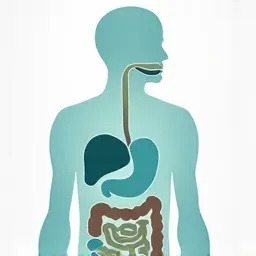IMO Precision Medicine: How Personalized Treatment is Revolutionizing Intestinal Methanogen Overgrowth Care in 2025

IMO Precision Medicine: How Personalized Treatment is Revolutionizing Intestinal Methanogen Overgrowth Care in 2025
If you've been struggling with chronic constipation, unexplained weight gain, and persistent bloating that doesn't respond to traditional treatments, you may be dealing with Intestinal Methanogen Overgrowth (IMO). The good news? 2025 has ushered in a new era of precision medicine approaches that are transforming how we diagnose, understand, and treat this complex condition.
Gone are the days of one-size-fits-all protocols. Today's IMO treatment leverages advanced microbiome analysis, personalized therapeutic strategies, and cutting-edge research to create individualized healing plans that address your unique gut ecosystem. This personalized approach is showing remarkable success rates and offering new hope for those who have struggled with conventional treatments.
Understanding IMO: Beyond the Basics
Intestinal Methanogen Overgrowth occurs when methane-producing microorganisms called archaea overgrow in the digestive tract. Unlike bacteria, these ancient single-celled organisms belong to a completely different domain of life, which is why researchers now prefer the term "IMO" over "methane SIBO" [3].
The primary culprit behind IMO is Methanobrevibacter smithii, an archaea that feeds on hydrogen gas produced by other microorganisms and converts it to methane [3]. This process significantly slows intestinal transit time, leading to the characteristic symptoms of chronic constipation, bloating, and often unexplained weight gain.
Why IMO Requires a Different Approach
Research has revealed that archaea can overgrow not just in the small intestine but throughout the entire digestive tract, making IMO more complex than traditional SIBO [3]. Additionally, these methane-producing organisms are notoriously difficult to eradicate because they're not technically bacteria and don't respond to many conventional treatments.
The Precision Medicine Revolution in IMO Treatment
2025 has marked a turning point in IMO care with the emergence of precision medicine approaches that tailor treatment to individual patient profiles. This personalized strategy considers multiple factors including genetic predisposition, microbiome composition, metabolic patterns, and treatment response history.
Advanced Microbiome Mapping
Modern IMO treatment now begins with comprehensive microbiome analysis that goes far beyond traditional breath testing. Advanced stool analysis and microbiome assessment provide detailed insights into [3]:
- Specific archaea species and their abundance levels
- Beneficial bacteria populations that compete with methane producers
- Biofilm formation patterns and protective matrices
- Metabolic pathways and gas production mechanisms
- Individual microbiome diversity and balance
This detailed mapping allows practitioners to identify not just the presence of IMO, but the specific microbial ecosystem imbalances that need to be addressed for each individual patient.
Breakthrough Treatment Approaches in 2025
1. Personalized Elemental Diet Protocols
One of the most significant advances in IMO treatment comes from recent research published in Clinical Gastroenterology and Hepatology by Cedars-Sinai Medical Center [1]. This groundbreaking study examined a more palatable elemental diet specifically designed for SIBO and IMO patients.
The results were remarkable:
- 83% of participants reported significant symptom improvement with relief from bloating and discomfort [1]
- 73% achieved lactulose breath test normalization indicating successful treatment [1]
- 100% completion rate - all 30 patients were able to tolerate the diet for the full 2-week period [1]
- Sustained benefits continued even after returning to regular food [1]
"Food is not just fuel — if it's designed correctly and specifically, it can also serve as treatment," explains Dr. Ali Rezaie, medical director of GI motility at Cedars-Sinai and lead researcher of the study [1].
The elemental diet works by providing pre-digested nutrients that are absorbed in the upper small intestine, effectively starving the archaea in lower regions that depend on undigested food particles [3]. This approach addresses IMO at its source by removing the fuel these organisms need to survive and produce methane.
2. Targeted Herbal Antimicrobial Combinations
Precision medicine approaches now utilize sophisticated herbal protocols based on individual microbiome profiles and treatment response patterns. The most effective strategies employ a "combine and rotate" approach that prevents resistance development [3].
Research-backed natural antimicrobials showing promise for IMO include:
- Allicin (garlic extract): Animal studies demonstrate significant methane reduction capabilities [3]
- Oregano oil: In vitro studies show effectiveness against methane-producing organisms [3]
- Neem: Research in animal feed studies reveals methane reduction properties [3]
The key innovation is personalizing these combinations based on individual microbiome analysis, treatment history, and genetic factors that influence drug metabolism and response.
3. Biofilm Disruption Strategies
An estimated 80% or more of archaea infections involve biofilms—protective matrices that make these organisms up to 1000 times more resistant to treatment [3]. Modern precision medicine protocols now include targeted biofilm-disrupting agents as a standard component of personalized treatment plans.
This breakthrough explains why some people experienced repeated treatment failures with traditional approaches. By addressing biofilms through personalized protocols, practitioners are seeing significantly higher success rates in previously stubborn cases.
Personalized Microbiome Restoration
2025 research has highlighted that simply eradicating the overgrowth isn't enough for long-term success. Precision medicine approaches now focus heavily on personalized microbiome restoration based on individual gut ecosystem analysis [3].
Targeted Prebiotic Therapy
Specific prebiotics are now selected based on individual microbiome profiles:
- Partially Hydrolyzed Guar Gum (PHGG): Feeds beneficial bacteria that compete with methane producers [3]
- Galacto-oligosaccharides (GOS): Animal studies show methane reduction properties [3]
The precision medicine approach determines which prebiotics will be most effective for each individual based on their existing beneficial bacteria populations and metabolic capacity.
Strain-Specific Probiotic Selection
Not all probiotics are helpful for IMO, and some can actually worsen symptoms. Precision medicine approaches now use microbiome analysis to select specific strains that will benefit each individual patient:
- Bifidobacterium lactis HN019: Shown to improve transit time in specific patient populations [3]
- Lactobacillus reuteri 17938: Demonstrated beneficial effects on chronic constipation through methane reduction [3]
Advanced Diagnostic Technologies
Precision medicine in IMO care now incorporates multiple diagnostic modalities to create comprehensive patient profiles:
Multi-Modal Testing Approaches
- Advanced breath testing: Beyond basic methane measurement to include hydrogen sulfide and other metabolites
- Comprehensive stool analysis: Detailed microbiome mapping including archaea populations
- Metabolomic profiling: Analysis of metabolic byproducts to understand individual gut chemistry
- Genetic testing: Identification of genetic variants affecting drug metabolism and microbiome composition
Root Cause Analysis and Personalized Prevention
Modern precision medicine approaches emphasize identifying and addressing the underlying factors that led to IMO development in each individual case [3]. This personalized root cause analysis examines:
Individual Risk Factors
- Motility disorders: Hypothyroidism, diabetes, or neurological conditions
- Digestive defects: Low stomach acid, insufficient enzymes, or bile production issues
- Physical obstructions: Adhesions, endometriosis, or ileocecal valve dysfunction
- Medication effects: PPIs, opioids, or other motility-affecting drugs
- Genetic predispositions: Variants affecting gut motility or immune function
Personalized Prevention Strategies
Based on individual risk profiles, precision medicine approaches develop customized prevention plans that may include:
- Targeted dietary modifications based on genetic variants
- Personalized supplement protocols for ongoing microbiome support
- Individualized stress management strategies
- Customized exercise and lifestyle recommendations
The Constipation-Methane Cycle: Personalized Solutions
One of the most challenging aspects of IMO is how methane gas slows intestinal transit time, creating a vicious cycle. Research shows that the higher the methane levels, the more severe constipation becomes [3].
Precision medicine approaches now address this cycle through personalized strategies that consider individual factors such as:
- Baseline motility patterns and genetic variants
- Individual response to different types of fiber and prebiotics
- Personalized magnesium and vitamin C protocols
- Targeted prokinetic agents based on individual needs
- Customized stress management approaches for gut-brain axis support
Weight Management and Metabolic Considerations
Many people with IMO experience unexplained weight gain, which precision medicine research has now explained. The archaea responsible for IMO are "obesogens" that help the body extract additional calories from food [3].
Personalized treatment approaches now address this metabolic component through:
- Individual metabolic profiling to understand calorie extraction patterns
- Customized dietary strategies based on personal metabolism
- Targeted interventions to restore healthy metabolic function
- Personalized exercise recommendations to support gut motility
Treatment Monitoring and Adjustment
Precision medicine approaches in 2025 emphasize continuous monitoring and treatment adjustment based on individual response patterns. This includes:
Personalized Response Tracking
- Regular symptom monitoring using validated assessment tools
- Periodic breath testing to track methane levels
- Follow-up microbiome analysis to assess ecosystem changes
- Metabolomic monitoring to track biochemical improvements
Dynamic Treatment Adjustment
Based on individual response patterns, treatment protocols are continuously refined to optimize outcomes for each patient's unique situation.
The Future of IMO Precision Medicine
As we progress through 2025, several exciting developments are on the horizon:
Artificial Intelligence Integration
AI-powered analysis of microbiome data is enabling even more precise treatment recommendations based on patterns identified across thousands of patient cases.
Pharmacogenomic Testing
Genetic testing to predict individual responses to specific treatments is becoming more sophisticated and accessible.
Real-Time Monitoring Devices
Wearable devices that can monitor gut gas production and motility in real-time are being developed to provide continuous treatment feedback.
Working with Precision Medicine Practitioners
If you're considering precision medicine approaches for IMO, look for healthcare providers who:
- Understand the distinction between IMO and traditional SIBO
- Use comprehensive testing approaches including microbiome analysis
- Develop personalized treatment protocols based on individual profiles
- Address root causes, not just symptoms
- Incorporate both conventional and natural treatment options
- Provide ongoing monitoring and treatment adjustment
- Stay current with the latest precision medicine research
Key Takeaways
- Precision medicine is revolutionizing IMO treatment through personalized approaches
- Advanced microbiome analysis enables targeted, individualized treatment protocols
- The improved elemental diet shows 83% success rates with better tolerability
- Personalized herbal antimicrobial combinations are more effective than generic protocols
- Biofilm disruption strategies significantly improve treatment outcomes
- Individual root cause analysis is essential for long-term success
- Personalized microbiome restoration prevents relapse
- Continuous monitoring and treatment adjustment optimize outcomes
- The future includes AI integration and real-time monitoring capabilities
The era of precision medicine for IMO represents a fundamental shift from generic treatment approaches to truly personalized care. By understanding your unique gut ecosystem, genetic profile, and individual response patterns, healthcare providers can now develop targeted strategies that address the root causes of your condition and optimize your path to healing.
While IMO remains a complex condition, the precision medicine approaches emerging in 2025 offer unprecedented opportunities for successful treatment and long-term gut health restoration. The key is working with knowledgeable practitioners who understand these advanced approaches and can develop a personalized treatment plan tailored to your unique needs.
References
- Healio. Palatable elemental diet a 'major tool' for treating bacterial, methanogen overgrowth. May 20, 2025. Available from: https://www.healio.com/news/gastroenterology/20250519/palatable-elemental-diet-a-major-tool-for-treating-bacterial-methanogen-overgrowth
- Cedars-Sinai Medical Center. Gut Microorganism May Play a Role in Constipation. August 29, 2024. Available from: https://www.cedars-sinai.org/newsroom/gut-microorganism-may-play-a-role-in-constipation/
- Lindemann B. Methane SIBO Treatment & Natural Protocols (2025 Guide). The Functional Gut Health Clinic. March 2025. Available from: https://bellalindemann.com/blog/treat-constipation-causing-methane-sibo
Disclaimer: This article is for educational purposes only and is not intended as medical advice. IMO is a complex condition that requires proper diagnosis and treatment by qualified healthcare providers. Always consult with a healthcare professional before starting any new treatment protocol.



